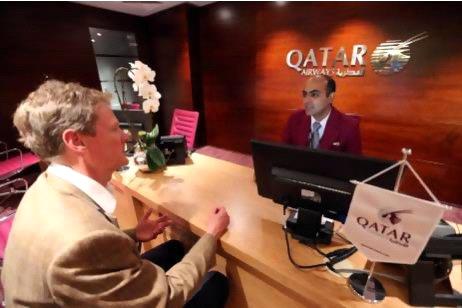Ammon News - LONDON (The National) - It is 5pm on a hot Friday afternoon in London's swanky Knightsbridge, and Harrods is mobbed.
It's shoulder-to-shoulder in the "top people's store" as shoppers cram in, moving past the green-liveried doorman, and through to the delights of the best-known department store in Britain, perhaps in the world.
They linger in the food halls for a while, maybe buy a tin or two of some Harrods-branded item like English tea or strawberry jam, and then head through to ogle the fine jewellery and watches.
Up the Egyptian escalators they stream, clutching the store's renowned green and gold bag with a few souvenirs inside, to stare at fur coats, lingerie and designer couture at eye-watering prices, before heading back out of the store and on to their tour buses.
Another box has been ticked on the great tour of London.
Harrods is still a must-see in the British capital, like Big Ben, the Tower of London and Buckingham Palace.
The shop attracts some 40,000 visitors daily, and it's testimony to Harrods' enduring brand, and the shrewd management of its still relatively new Qatari owners, that itremains such a popular destination.
Ownership by Middle East investors is nothing new for Harrods, but in the three years since it was acquired from the eccentric Egyptian Mohamed Al Fayed by Qatar Holding for £1.5 billion (Dh8.47bn at current conversion rates), there has been a quiet revolution in the way the store is managed.
Katharine Witty, the group director of corporate affairs, reels out the figures: in the year to January 31, 2012, some £107.8 million was invested by Qatar in the store, its supply chain in the United Kingdom and its airport outlets.
In the same period, revenue rose 11 per cent, nearly three times the average increase in the UK department store sector; this year's figures are still being worked on, but Ms Witty confidently predicts "another year of double-digit growth".
New escalators have been installed, new franchises opened. Big Shoe Heaven, the biggest women's shoe shop in Europe, will open soon. New restaurants and cafes come and go. The latest, Ladurée, a macaroon and coffee shop in Louis Quatorze style, is doing good business.
There are a couple of obvious signs of the new owners. Qatar Airways has opened a ticket office in the store; and an Arabic- themed cafe and patisserie, In-Q has opened on the second floor, apparently at the expense of floor space at Harrods' famous but now slimmed-down bookshop.
"We'd like to think we can offer Qataris a home from home. We're seeing a lot more visitors from Qatar and the rest of the Middle East, even though we haven't done much marketing there. We already have very good relations with the Middle East," says Ms Witty.
More Arabic-speaking staff have been hired recently to deal with the increasing numbers of visitors from the region. In the weeks ahead of Ramadan, Arabian Gulf numbers rose significantly.
The owners are "very much involved" in the running of the business, says Ms Witty.
"They bought a brand they feel passionate about, and there are plans to expand it.
"A Harrods hotel will open in Kuala Lumpur, and other possible sites around the world. London and the UK is a possibility, but we haven't identified any sites in Britain yet,"she says.
There are no plans for a full-blown store to open in Qatar, though there is a branded concession at Doha airport.
The Harrods chairman and chief executive Ahmad Al Sayed is said to play a "major role" in business strategy at the store. He was recently made chief executive of the Qatar Investment Authority amid extensive government changes in Doha, but there has been "no change" in the way Harrods is run, says Ms Witty.
With the increase in the number of tourists visiting the store, there was speculation that the numbers of traditional Harrods shoppers - wealthy British people based in the super-prime residential areas of west London - might be falling off. Ms Witty insists that a majority of shoppers are still what she calls "locals", but admits the foreign visitor numbers are rising.
And despite the large number of backpackers in shorts this particular day, content to walk away with a small-ticket item in that renowned plastic bag, there was plenty of evidence that Harrods is still catering for its core market of high net worth individuals.
In the Cartier concession in the fine watches department, the manager had just sold the most expensive piece in the shop, a gold and jewel encrusted wristwatch with a price tag of €600,000 (Dh2.9 million).
Elsewhere in the store, the punters were going for the usual range of top-notch brands: Louis Vuitton, Prada, Gucci, all with a decent Harrods markup. Accessories, handbags, jewellery and watches were all "high performing areas".
So has Harrods become just another stop on the London tourism scene? Or is it still the "top people's store"?
The strategy under the new Qatari owners suggests it will continue to be both. The store's Latin motto, after all, is: omnia, omnibus, ubique - all things, for all people, everywhere.
